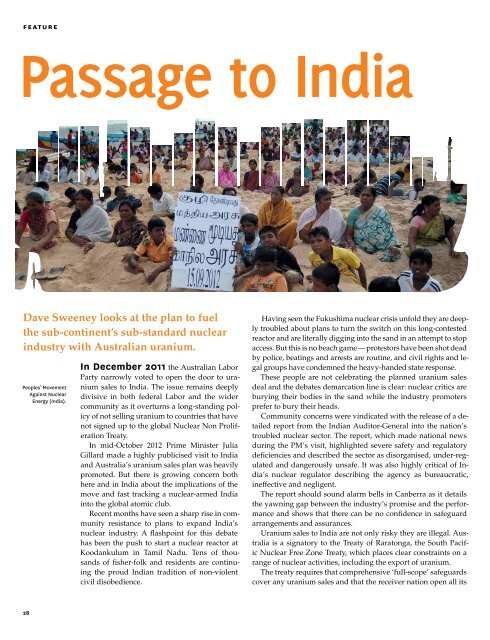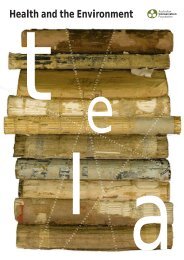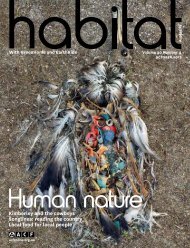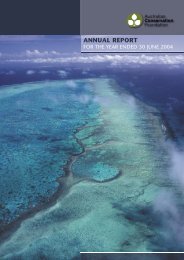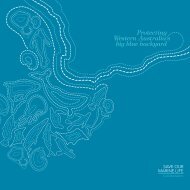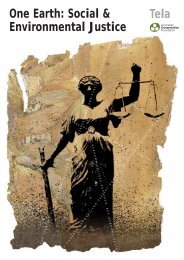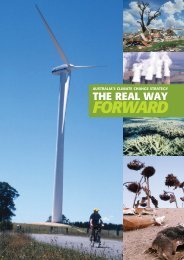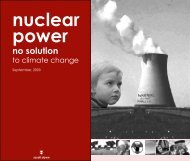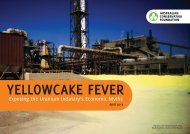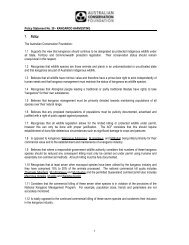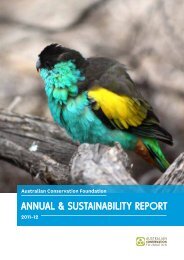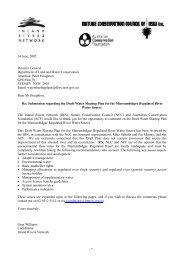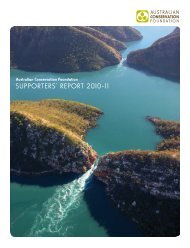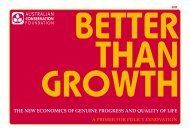habitat magazine - Australian Conservation Foundation
habitat magazine - Australian Conservation Foundation
habitat magazine - Australian Conservation Foundation
You also want an ePaper? Increase the reach of your titles
YUMPU automatically turns print PDFs into web optimized ePapers that Google loves.
Feature<br />
Passage to India<br />
Dave Sweeney looks at the plan to fuel<br />
the sub-continent’s sub-standard nuclear<br />
industry with <strong>Australian</strong> uranium.<br />
Peoples’ Movement<br />
Against Nuclear<br />
Energy (India).<br />
28<br />
In December 2011 the <strong>Australian</strong> Labor<br />
Party narrowly voted to open the door to uranium<br />
sales to India. The issue remains deeply<br />
divisive in both federal Labor and the wider<br />
community as it overturns a long-standing policy<br />
of not selling uranium to countries that have<br />
not signed up to the global Nuclear Non Proliferation<br />
Treaty.<br />
In mid-October 2012 Prime Minister Julia<br />
Gillard made a highly publicised visit to India<br />
and Australia’s uranium sales plan was heavily<br />
promoted. But there is growing concern both<br />
here and in India about the implications of the<br />
move and fast tracking a nuclear-armed India<br />
into the global atomic club.<br />
Recent months have seen a sharp rise in community<br />
resistance to plans to expand India’s<br />
nuclear industry. A flashpoint for this debate<br />
has been the push to start a nuclear reactor at<br />
Koodankulum in Tamil Nadu. Tens of thousands<br />
of fisher-folk and residents are continuing<br />
the proud Indian tradition of non-violent<br />
civil disobedience.<br />
Having seen the Fukushima nuclear crisis unfold they are deeply<br />
troubled about plans to turn the switch on this long-contested<br />
reactor and are literally digging into the sand in an attempt to stop<br />
access. But this is no beach game — protestors have been shot dead<br />
by police, beatings and arrests are routine, and civil rights and legal<br />
groups have condemned the heavy-handed state response.<br />
These people are not celebrating the planned uranium sales<br />
deal and the debates demarcation line is clear: nuclear critics are<br />
burying their bodies in the sand while the industry promoters<br />
prefer to bury their heads.<br />
Community concerns were vindicated with the release of a detailed<br />
report from the Indian Auditor-General into the nation’s<br />
troubled nuclear sector. The report, which made national news<br />
during the PM’s visit, highlighted severe safety and regulatory<br />
deficiencies and described the sector as disorganised, under-regulated<br />
and dangerously unsafe. It was also highly critical of India’s<br />
nuclear regulator describing the agency as bureaucratic,<br />
ineffective and negligent.<br />
The report should sound alarm bells in Canberra as it details<br />
the yawning gap between the industry’s promise and the performance<br />
and shows that there can be no confidence in safeguard<br />
arrangements and assurances.<br />
Uranium sales to India are not only risky they are illegal. Australia<br />
is a signatory to the Treaty of Raratonga, the South Pacific<br />
Nuclear Free Zone Treaty, which places clear constraints on a<br />
range of nuclear activities, including the export of uranium.<br />
The treaty requires that comprehensive ‘full-scope’ safeguards<br />
cover any uranium sales and that the receiver nation open all its


